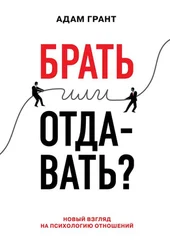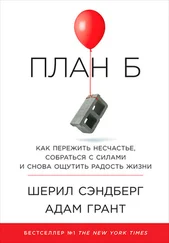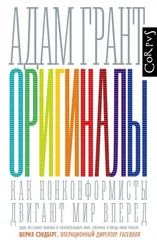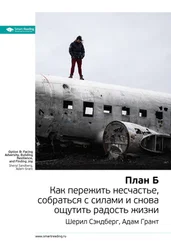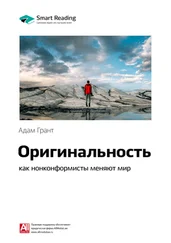Именно с этой целью квакеры проводят «собрания для прояснения». Там людям задают вопросы, чтобы вскрыть их сомнения и подтолкнуть к решению.
Kate Murphy, «Talk Less. Listen More. Here’s How», New York Times, January 9, 2010, www.nytimes.com/2020/01/09/opinion/listening-tips.html.
Guy Itzchakov et al., «The Listener Sets the Tone: High-Quality Listening Increases Attitude Clarity and Behavior-Intention Consequences», Personality and Social Psychology Bulletin 44 (2018): 762–78; Guy Itzchakov, Avraham N. Kluger, and Dotan R. Castro, «I Am Aware of My Inconsistencies but Can Tolerate Them: The Effect of High Quality Listening on Speakers’ Attitude Ambivalence», Personality and Social Psychology Bulletin 43 (2017): 105–20.
Guy Itzchakov and Avraham N. Kluger, «Can Holding a Stick Improve Listening at Work? The Effect of Listening Circles on Employees’ Emotions and Cognitions», European Journal of Work and Organizational Psychology 26 (2017): 663–76.
Guy Itzchakov and Avraham N. Kluger, «The Power of Listening in Helping People Change», Harvard Business Review, May 17, 2018, hbr.org/2018/05/the-power-of-listening-in-helping-people-change.
E. M. Forster, Aspects of the Novel (New York: Houghton Mifflin, 1927/1956); see also Graham Wallas, The Art of Thought (Kent, England: Solis Press, 1926/2014).
Wendy Moffat, E. M. Forster: A New Life (London: Bloomsbury, 2011).
Judi Brownell, «Perceptions of Effective Listeners: A Management Study», International Journal of Business Communication 27 (1973): 401–15.
«Poll: 1 in 3 Women Say Pets Listen Better Than Husbands», USA Today, April 30, 2010, usatoday30.usatoday.com/life/lifestyle/pets/2010-04-30-pets-vs-spouses_N.htm.
Naykky Singh Ospina et al., «Eliciting the Patient’s Agenda: Secondary Analysis of Recorded Clinical Encounters», Journal of General Internal Medicine 34 (2019): 36–40.
M. Kim Marvel et al., «Soliciting the Patient’s Agenda: Have We Improved?», Journal of the American Medical Association 281 (1999): 283–87.
Amanda Ripley, «Complicating the Narratives», Solutions Journalism, June 27, 2018, thewholestory.solutionsjournalism.org/complicating-the-narratives-b91ea06ddf63.
Peter T. Coleman, The Five Percent: Finding Solutions to Seemingly Impossible Conflicts (New York: PublicAffairs, 2011).
Katharina Kugler and Peter T. Coleman, «Get Complicated: The Effects of Complexity on Conversations over Potentially Intractable Moral Conflicts», Negotiation and Conflict Management Research (2020), onlinelibrary.wiley.com/doi/full/10.1111/ncmr.12192.
Matthew Fisher and Frank C. Keil, «The Binary Bias: A Systematic Distortion in the Integration of Information», Psychological Science 29 (2018): 1846–58.
«The Most Popular Book of the Month», Vanity Fair, February 1920, babel.hathitrust.org/cgi/pt?id=mdp.39015032024203&view=1up&seq=203&q1=divide%20the%20world.
Walt Whitman, Leaves of Grass, in Walt Whitman: The Complete Poems, ed. Francis Murphy (London: Penguin Classics, 1855/2005).
Ripley, «Complicating the Narratives».
Кричащие заголовки о том, что Америка разделилась на два лагеря по поводу закона о ношении оружия, опускают много нюансов. Да, в этом вопросе мнения республиканцев и демократов диаметрально разошлись почти в равных долях — 47 и 50%. Однако, согласно опросам, они сошлись в том, что выдавать разрешения на оружие надо после проверки на наличие правонарушений и судимостей (этот пункт поддержали 83% республиканцев и 96% демократов) и подтверждения психического здоровья (поддержали 81% республиканцев и 94% демократов).
Mike DeBonis and Emily Guskin, «Americans of Both Parties Overwhelmingly Support ‘Red Flag’ Laws, Expanded Background Checks for Gun Buyers, Washington Post — ABC News Poll Finds», Washington Post, September 9, 2019, www.washingtonpost.com/politics/americans-of-both-parties-overwhelmingly-support-red-flag-laws-expanded-gun-background-checks-washington-post-abc-news-poll-finds/2019/09/08/97208916-ca75-11e9-a4f3-c081a126de70_story.html; Domenico Montanaro, «Poll: Most Americans Want to See Congress Pass Gun Restrictions», NPR, September 10, 2019, www.npr.org/2019/09/10/759193047/poll-most-americans-want-to-see-congress-pass-gun-restrictions.
Moira Fagan and Christine Huang, «A Look at How People around the World View Climate Change», Pew Research Center, April 18, 2019, www.pewresearch.org/fact-tank/2019/04/18/-look-at-how-people-around-the-world-view-climate-change.
«Environment», Gallup, news.gallup.com/poll/1615/environment.aspx; «About Six in Ten Americans Think Global Warming Is Mostly Human-Caused», Yale Program on Climate Change, December 2018, climatecommunication.yale.edu/wp-content/uploads/2019/01/climate_change_american_mind_december_2018_1–3.png.
Ben Tappin, Leslie Van Der Leer, and Ryan Mckay, «You’re Not Going to Change Your Mind», New York Times, May 27, 2017, www.nytimes.com/2017/05/27/opinion/sunday/youre-not-going-to-change-your-mind.html.
Lawrence C. Hamilton, «Education, Politics and Opinions about Climate Change: Evidence for Interaction Effects», Climatic Change 104 (2011): 231–42.
Al Gore, «The Case for Optimism on Climate Change», TED, February 2016, www.ted.com/talks/al_gore_the_case_for_optimism_on_climate_change.
Steven Levy, «We Are Now at Peak TED», Wired, February 19, 2016, www.wired.com/2016/02/we-are-now-at-peak-ted.
Al Gore, «We Can’t Wish Away Climate Change», New York Times, February 27, 2010, www.nytimes.com/2010/02/28/opinion/28gore.html.
«Global Warming’s Six Americas», Yale Program on Climate Change Communication, climatecommunication.yale.edu/about/projects/global-warmings-six-americas.
Alexander Michael Petersen, Emmanuel M. Vincent, and Anthony LeRoy Westerling, «Discrepancy in Scientific Authority and Media Visibility of Climate Change Scientists and Contrarians», Nature Communications 10 (2019): 3502.
Matto Mildenberger and Dustin Tingley, «Beliefs about Climate Beliefs: The Importance of Second-Order Opinions for Climate Politics», British Journal of Political Science 49 (2019): 1279–307.
Климатологи пошли дальше и отмечают, что отрицающие тоже делятся как минимум на шесть категорий [ Philipp Schmid and Cornelia Betsch, «Effective Strategies for Rebutting Science Denialism in Public Discussions», Nature Human Behavior 3 (2019): 931–39. ]. Вот их позиции: 1) выбросы СО 2не растут; 2) даже если выбрасывается все больше СО 2, никакого потепления нет; 3) даже если глобальное потепление существует, у него естественные причины; 4) даже если люди виновны в глобальном потеплении, их влияние минимально; 5) даже если в глобальном потеплении виновны люди, от него не будет вреда; 6) прежде чем ситуация заметно ухудшится, мы как-нибудь адаптируемся или решим проблему. Согласно экспериментам, предоставляя публичную платформу тем, кто отрицает научные данные, мы способствуем распространению ложных мнений, поэтому необходимо опровержение их доводов или методов.
Читать дальше
Конец ознакомительного отрывка
Купить книгу

